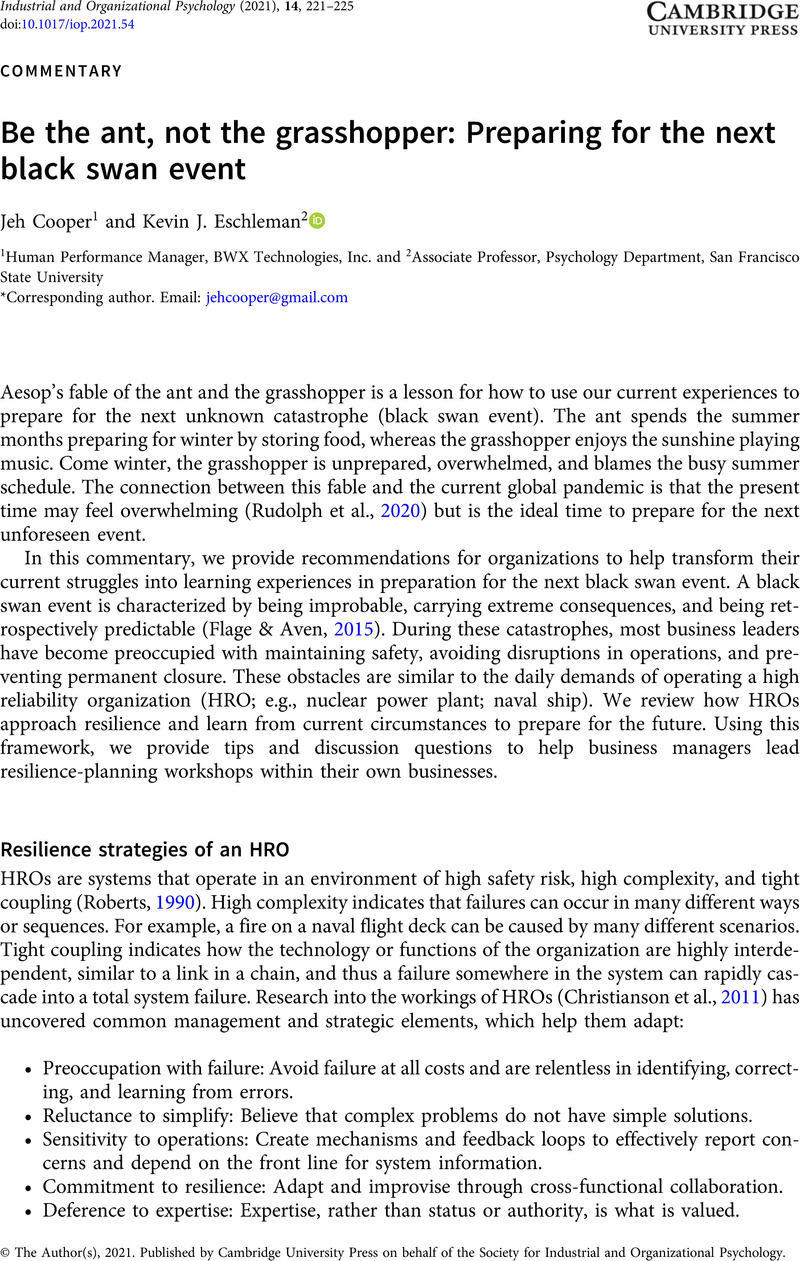Crossref Citations
This article has been cited by the following publications. This list is generated based on data provided by Crossref.
Tworek, Katarzyna
Bieńkowska, Agnieszka
Hawrysz, Liliana
and
Maj, Jolanta
2023.
The Model of Organizational Performance Based on Employees’ Dynamic Capabilities–Verification During Crisis Caused by Black Swan Event.
IEEE Access,
Vol. 11,
Issue. ,
p.
45039.
van Rensburg, Zander Janse
and
van der Westhuizen, Sonja
2023.
Handbook of Academic Integrity.
p.
1.
van Rensburg, Zander Janse
and
van der Westhuizen, Sonja
2024.
Second Handbook of Academic Integrity.
p.
485.
van Rensburg, Zander Janse
and
van der Westhuizen, Sonja
2024.
Second Handbook of Academic Integrity.
p.
485.



